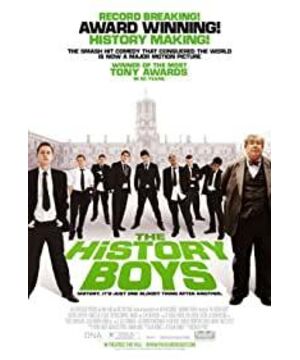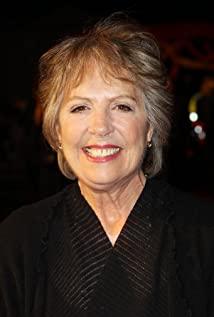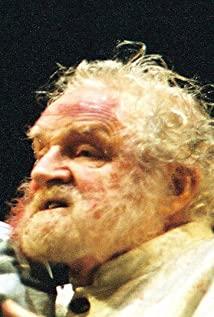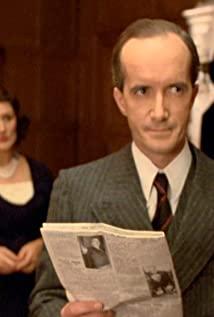I watched "The history boys" in the afternoon. The drama was changed to a movie. The actors' lines are really good. The words are gorgeous and smooth. Too bad, both teachers and students can only recite a few words of Whitman's "Oh, captain, my captain", no wonder the European Cultural Center theory is still so popular.
The setting is a grammar school for boys in the 1980s, and the characters are three history teachers, eight students and a headmaster.
Mr. Hector, who likes to put his hands on the boy's ball in the back seat when riding a motorcycle, is funny, easy-going and informal. His teaching method is sloppy and unstructured. He is keen to cultivate students' goodwill in poetry and rhetoric. Eight students often meet in French class. Attending a mock brothel to consolidate mastery of the subjunctive vocabulary... But students aren't going to be fooled by this slow-paced, unproductive old-fashioned way of teaching—they're targeting an Oxford or Cambridge history department. The principal invited Irwin, a young teacher who graduated from Oxford. The teacher's teaching is sharp, profound and full of passion, which just complemented Hector's method. In the end, all eight students got what they wanted.
What I have said casually is probably all kinds of emotions that are difficult for ordinary Chinese students to understand and how to deal with them. When I compared Darkin's confession to Irwin with Clive's to Maurice, I found similar elements. So emotion is what motivates me to look, but I don't want to talk about it, I'm interested in Socrates.
Is Hector's teaching style Socratic? The Headmaster answered yes to this, so what about Irwin, who looks trendy and sharp? I think so too.
The opening scene in the film is very interesting, and I may have thought too much: a student rides a bicycle to church, and the priest is saying a prayer: "The peace of God, which surpasses all understanding, will guard your hearts and minds in Christ Jesus. The blessings of the Almighty Lord, the Father, the Son and the Holy Spirit, will bless you and coexist with you, now and in the future, Amen." Seeing the three teachers who appeared in the back, there was always a vague sense of Contrast with the feeling of trinity. It happened that the three teachers adopted three different teaching methods, so they took it for granted.
As the only female teacher, Dorothy's teaching is rigorous and critical. Hector was not because of his rambling and aimless teaching methods that made the school unacceptable. On the contrary, the principal said something like "effective", but was forced to retire because he was seen touching the ball by the female inspector. The new Irwin was able to mobilize the students' enthusiasm for knowledge to the greatest extent. Three teachers with different personalities and styles got together and taught eight Oxbridge students.
Hector is required to subtly influence students in long-term teaching, pay attention to literary literacy and rely on such a foundation, and he likes to hang book bags when he can "do whatever he wants" when he is gray-haired? He believes that time can bring people the greatest comfort, but he is really hurt by time. The contradiction is reflected in every moment he speaks, and he enjoys it. Worshiping comfort is a cowardly act, and he is still fighting in a Faustian manner at the age of sixty. It is not beautiful at all, but it makes people feel good-this cannot be called sympathy, sympathy should be A mockery of him and those of us who have a crush on us. It doesn't make people angry, but it shouldn't be used on Hector, even if he's drunk like a strong man and is going to die tomorrow. Hector is a pure and natural teacher, he does not need to use school rules or other things including morals to restrain himself, because he believes that for a real teacher, the identity of "teacher" should be the biggest constraint, in addition to , without any restrictions.
Irwin is much simpler, the kind of guy who's been made awkward by the quick-witted modernity, but, reluctantly, very likable. Whether it is an audience or a student, or even the heartthrob Darkin. His tartness was as endearing as his depth, just like his confidence and inferiority, which blended just right, making him both arrogant and confused. The cool and thin cheeks represent self-control, and the cover of glasses is full of light. Everyone loves him so much that even his flawed fonts are understood and imitated. Irwin's passion in class was powerful, quite engaging, and the eyeballs he earned made him both smug and terrified. So much so that in the end, even I thought he would really kneel on the ground, suck Darkin... Irwin is such a teacher, he not only passed and obtained like Hector, but more often he combined the two into one. One, making himself vulnerable like an ascetic monk, and there is always someone who lifts the mask of ugliness and attacks him. We all love Irwin, the students love it, the teacher loves it, and he loves it himself, so in the end his forgetting about the date with Darkin is so unreasonable but affectionate. Irwin himself has no self-consciousness to be a teacher, so he is more and more the kind of annoying person who needs to remind himself to be self-conscious at all times. He is too young to stand the test, so it is better to give up the test, which we both love and hate.
Dorothy's appearances are brief but not ineffective, and her view of history is as prejudiced and awed as history itself. She is a recluse, but she is not low-key. She blooms at the right time, and it is easy to teach people to suddenly fall into embarrassment because she is so simple and true, like a manual of modern history, but she is the most vulnerable to countless opinions. And easy to swing. Dorothy should play a mediating role, but in fact she is often the most excited, and students remember the existence of such a teacher because they remember her occasional thunderstorm.
In fact, the three teachers collectively embody the wisdom and responsibility of Socrates, because this is unavoidable, and because—there it is. The short two-hour movie reflects so many truths, but it is not crowded and cramped. On the contrary, there is a kind of poetic nature flowing slowly through it. It is simply the best white paper on British education. I have to sigh, a good one. The tension can indeed achieve the extreme of literary and performative, or can find the best balance point, so as to win time and space in any situation.
After watching the movie, someone woke up and said that what was emphasized from beginning to end was not the phrase "history is just one fuckin' thing after another." but what Hector said, education needs "Take it, feel it and pass it on".
Therefore, this film is actually paying the highest tribute to Mr. Socrates, a citizen of Athens, from beginning to end. Including the ubiquitous love and responsibility that permeates young and old bodies.
View more about The History Boys reviews











